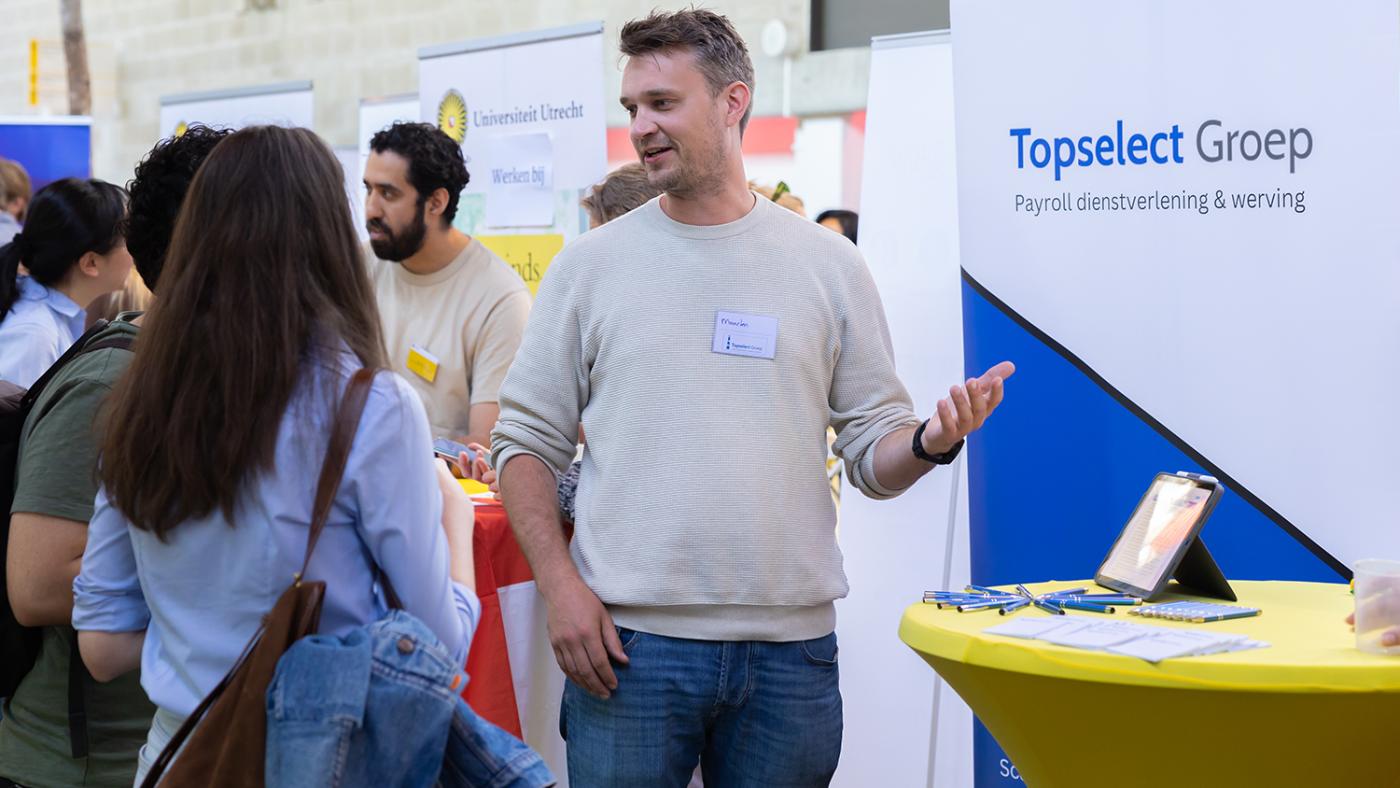They struggle with work visas, Dutch proficiency and qualifications
Non-European students feel the need to overperform

Over the last year, the Dutch government has increasingly positioned itself against international students and workers. At the same time, international students have been more likely to stay in the Netherlands after graduating. A report by Nuffic, the organisation for internationalisation in Dutch education, found that the number of international graduates staying in the Netherlands has increased, with over 30 percent of graduates from 2018/19 still in the Netherlands five years after graduation.
Considering these two opposing forces, the recent debate surrounding the internationalisation of Dutch academia and the workforce comes as no surprise. In this context, many international students wonder whether they are welcome as interns and employees in the current job market.
International graduates from non-EU countries need a visa to stay in the Netherlands. They can apply for the so-called "orientation year", a permit that extends their stay after graduation so that they can look for a job. During this year, employers do not need to apply for a work visa to employ them. However, the orientation year visa is non-renewable: if the graduate finds a job, it is up to the employer to apply for a work visa for the second year (and all subsequent years). To be able to apply for such a visa on an employee's behalf, a company must first have a permit to act as a sponsor.
‘I gotta be much better than others’
A UCU student from Kazakhstan who graduated earlier this month tells us that the difficulties in obtaining a visa were among her reasons for not staying in the Netherlands. Instead, she has chosen to pursue a Master's degree in another European country. “I wanted to do an internship in the Netherlands after graduating, but that does not count during an orientation year as it is not an official job,” she explains.
“The bureaucracy creates issues every step of the way. Even a simple side job, such as working at a supermarket or café, is harder to come by as a non-EU international student. Being from outside the EEA lowers your chances. I can speak Dutch and do most of my job interviews in Dutch. However, I have been rejected from jobs for ‘not speaking Dutch,’ even though they saw that I could,” she says. “The employers were just looking for an excuse not to hire a non-European student. They do not want to bother with the paperwork.” She explains that this difficulty has led to financial difficulties and alienation.
“The possibility of having trouble with visas was a factor when choosing not to keep studying here.” She has heard many horror stories of how things can go wrong: “I know some people from Kazakhstan who had to go back home because they couldn’t obtain a visa.” She says that it is a common worry among non-EU internationals: “Whenever Kazakh people meet up, we always end up talking about visas and complications with the Dutch government.”
“Throughout my education, I have felt that I must be much better than EU students to compete with them. Of course, the employer will choose someone easier to hire, which I understand.” However, she explains that worrying about this stresses non-EU internationals out: “I felt pressured to hustle more, do more extracurricular activities, and get better grades, which impacted my mental wellbeing.”
A diploma does not equal a job
A UU Master’s graduate who wishes to remain anonymous* details her experience finding a job in her field. After finishing her Bachelor’s in Child Psychology in Moscow, she worked in the field for five years in her home country, Russia. Following this, she came to the Netherlands for a Master’s degree. After graduating, she wanted to continue her career here, but ended up not being able to do so.
“I need a company to sponsor my visa because I'm a non-European worker. Many organisations do not want to bother doing that, as there are enough European psychologists out there.” Her European classmates who had no experience and fewer years of education were all finding jobs, whereas she was having a hard time landing one.
She believes that the university should be more transparent regarding prospects in the Netherlands. That would have helped her. “If they offer a certain programme, they should know about the careers one could follow with such a diploma. However, I asked teachers questions about my career trajectory because I wanted to work in the Netherlands, and they didn't have a clue.”
Since she wanted to stay in the Netherlands and could not find employment in her field, she ended up working in a restaurant for three years. Since then, she has shifted her occupation to data analysis and started learning Dutch, which has improved her career options greatly.
“If the university had told me clearly that there aren’t many opportunities in my field, it could have saved me a lot of time. I would have started studying a different field much earlier. Non-EU students are being taken in for money since tuition fees are much higher for us, but we are not given any advice on how to carry on afterwards.”

Photo: 123rf
Who are you most likely to pick?
Berk Yılmaz is a Turkish 3rd-year Bachelor’s student of Economics and Business Economics. He started noticing some patterns after searching for work experience, such as internships and assistantships, and observing his friends’ job searches. “If you say in your application that you come from a non-EU country, you're lowering your chances.”
He attributes this to work visa requirements: “EU students have an advantage because of visa concerns, especially after you graduate.” However, he acknowledges that proficiency in Dutch also plays an important role. “It's harder to be in customer-facing positions as an international. If there are two CVs for an HR manager, one Dutch and the other one international, employers would probably pick the Dutch person, especially if one can speak Dutch and the other cannot. After all, the former can collaborate more easily with peers and customers.”
He explains that the job market in his field is competitive all over the world, and the Netherlands is no exception. “It becomes a numbers game. The more applications you send out, the better. It is realistic to say that even if you are fully qualified, you will not hear back from most vacancies you apply to."
He stresses that he does not tie the difficulty of getting a job as an international to xenophobia or discrimination, but rather sees it as a consequence of a logical selection criterion. “I can understand that the concept of a visa sponsorship may be daunting to employers. I wouldn’t say there is prejudice while applications are being viewed. But, again, if you see three identical candidates, the Dutch one will be selected first, then the EU one, and lastly the non-EU one.”
Due to the natural disadvantage that non-EU students have, he feels that they often have to work harder than their EU or Dutch counterparts. He says that the non-EU students who end up scoring a job are often overqualified for it. Yet, he still sees some kind of meritocracy in it: “Still, I feel that the ones who are really good can get the jobs. The disadvantage impacts average students much more.”
He has also conducted a small experiment: “I’ve noticed that, after removing my nationality from my CV, I started to get invited for more internship interviews. When the employer doesn’t ask about your nationality, that’s when you know the selection process is fair.”
*DUB knows her identity.